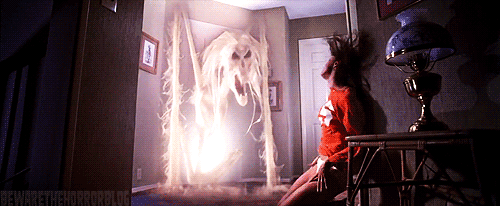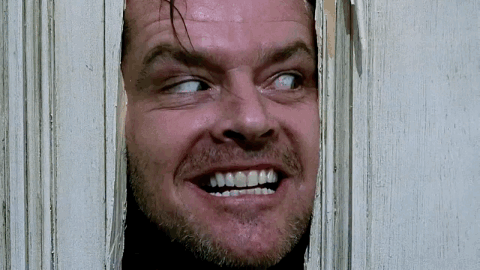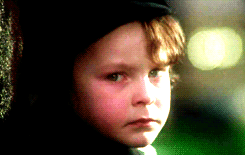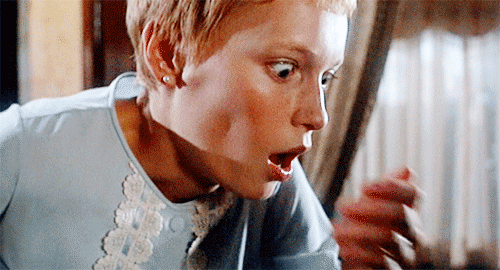 Submitted by Sven on
Submitted by Sven on

Image by Eleanor Smith from Pixabay
Horror movies aren't just for scaring the pants off of you; there are valuable life lessons to be found.
Following the buddy system and always killing a monster twice is great advice, but the following horror movie lessons go deeper into daily life and how to deal with it.
There were really no downsides to growing up watching horror films. With each visit to the neighborhood Blockbuster Video, I became increasingly desensitized to violence and effectively inoculated to the real-life horrors broadcast into our living room on the nightly news and decades later, Instagram.
As a Baptist kid living in the heyday of Jerry Falwell and Pat Robertson, I’m a little surprised my folks never stopped to question the horror movie morals I was learning. This got me thinking: Besides intense phobias of clowns, elevators, and other people–all very valid fears–what do horror movies teach us?
Horror films pack a lot of insight in-between all the blood-curdling screams and jump scares. Intertwined in the unabashed violence and nightmare fuel, horror movies provide valuable life lessons. Here are seven of the most fundamental lessons about human nature I gained from watching horror films growing up.

1. Real estate developers are sketchy as hell. - Poltergeist (1982)
In many ways, Poltergeist stood as a prescient warning of the real estate sins and ensuing crash that would come decades later. The movie came out in a time when we were just starting to become culturally aware of how deeply entangled private citizens are in the dangerous talons of corporate amorality.
In the eighties, corporations and their agents were often painted as monolithic forces of evil only concerned with corporate greed. In modern times, those depictions are more commonly found in documentaries.
The Freeling home looked like every home in my neighborhood growing up. Boasting vaulted ceilings that made cobweb removal a nightmare, wall-to-wall shag carpeting, popcorn ceilings, and perhaps the most iconically middle-class architectural style ever dreamed up, neighborhoods filled with these affordable family tract houses popped up almost overnight across America. Hastily thrown together, in many cases, these homes would often see settling problems quicker than you could say, “My waterbed sprung a leak!”
In Poltergeist, the negligence of a real estate developer causes all of the Freelings’ troubles. When Steve Freeling (Craig T. Nelson) realizes his employer, who built the tract, tried to cheap out on the cemetery, he shouts the iconic line, “You moved the cemetery, but you left the bodies, didn’t you?!”
Ultimately, Poltergeist is an apt meditation on how corporations are always screwing over the common people.

2. Vacations don't solve marriage problems. - The Shining (1980)
In Stanley Kubrick’s The Shining, which shares about 50% of the same DNA as the Stephen King novel it’s based on, a psychologically troubled family struggling with financial and marriage problems and a child clearly suffering from unaddressed issues decides the key to fixing everything is to shut themselves away in an isolated hotel for several months.
It seems like this should totally work, but surprisingly, it fails horribly. When patriarch Jack Torrance (Jack Nicholson) can’t get over his writer’s block, he ends up making out with a ghost corpse and getting wasted on supernatural ecto-booze before rampaging around the hotel with an ax. You know, like ya do.
There are many lessons to be gleaned from The Shining: Word processors are a marvel of modern living; letting your abusive spouse isolate you is actually hella dangerous; dressing your twins in matching clothes is creepy; it is possible for one actor to carry an entire movie.
But tucked away under all of those gorgeous textiles and Shelley Duvall’s soul-gratingly persistent whimpering and floppy knife hold is a very serious lesson: If you’re going to try to solve your marriage problems with a vacay, at least shell out for a half-decent Airbnb.

3. Don't forget to bring your camera on family outings. - The Omen (1976)
The Omen draws on one of the most truly relatable horror movie themes for many parents–the idea that their suspicions are correct and their child is indeed the spawn of Satan. That scene where young Damien has a meltdown in the church parking lot may be extremely relatable to any parent who has had to drag their screaming child out of Walmart minutes before making it to the front of the check-out line.
For all their wealth and power, Damien’s ambassador parents sure don’t have a lot of common sense. They lose track of the toddler while walking next to a fast-running stream and don’t notice for several minutes. Days after their au pair hangs herself from their country estate in view of dozens of children they hire a new governess on the spot who shows up with nothing but a snooty accent and a highly sketchy story. But the most unforgivable parental flub from Damien’s mom is showing up at a safari park with no plans to document the big outing on film.
Young Damien is literally face-to-face with four giraffes in what can only be described as a perfect Kodak moment. He scares them away with his terrifying demon child vibes, but before that happens, his mom completely misses the chance to get some amazing snaps. Moments later, hysterical baboons completely overtake their car. Instead of cowering in fear, any seventies mom worth her salt would have been grabbing some once-in-a-lifetime 35mm magic.

4. A boy's best friend is his mother. - Psycho (1960)
Poor Norman Bates, saddled with a crummy motel and the world’s creepiest California Gothic home, his boyish charm is wasted on more thieving real estate agents with no appreciation for his gorgeous taxidermy art.
The point is that she’ll never leave him, mostly because she can’t, and we should all be so lucky to have a family member as dedicated as Norman’s version of Norma in Psycho.

5. No matter where you are, prom sucks. - Carrie (1976)
Between the gorgeous class rings and Noxema-fresh senior pictures, high school graduation is a pretty hyped-up affair. But getting there is another story and, lest we forget, Carrie White is there to remind us that high school is pure hell.
From the miseries of puberty and whacked out hormones to locker room bullying and cringey interactions with well-intended gym teachers, every day in high school is a new excursion into the depths of the inferno. But all of that culminates in one glorious smorgasbord of torments on prom night, as Carrie learns when she is persuaded to participate in this taffeta-draped ritual torture.
The night starts off with high hopes after Carrie squeezes her dirty pillows into a Pinterest project straight from heaven and heads off with the Greatest American Hero for some handsy dancing, but it’s not long before she’s drowning in vapid small talk and pig’s blood.
At its core, Brian De Palma’s Carrie is a reminder that if all teenagers had pyrokinetic abilities, literally no one would live through adolescence because high school is the worst.
6. Don't make friends with the neighbors. - Rosemary's Baby (1968)
This psychological horror film follows a couple of Manhattan proto-hipsters who move into a dreamy apartment I would totally sell my soul for. Rosemary’s Baby serves as a complex and chillingly powerful analysis of female bodily autonomy, particularly given its deeply problematic director Roman Polanski. But it also comes with a simple lesson that we need now more than ever in the age of Facebook-powered oversharing: Trust no one because everyone is terrible, and most of all, never, ever make friends with the weirdo neighbors.
When Rosemary Woodhouse talks her skeezy actor husband into dinner with the quirky older couple living next door, the dinner menu includes steak, stylish vodka blushes, roofie-laced chocolate mousse, and a demonic #metoo moment that results in a mystical pregnancy trope.
It’s not enough that the poor woman is subjected to endless hours of bad acting practice from her narcissistic spouse and sharing a wall with geriatric Burning Man. Discount Iris Apfel from next door endlessly subjects Rosemary to bad cooking experiments and Satanic smoothies until she looks like pregnant Jack Skellington.
Surrounded by Satanic witches and with nowhere to turn, Rosemary delivers her devil child and resigns herself to joining the witchy Viagra rave in the next apartment over. The moral of the story? If you hang out with the weirdo neighbors too long, you’re eventually going to end up like them.

7. Humans will always be ruled by cats. - Alien (1979)
If ever there was a movie that wasn’t appropriate for kid me, it was Alien. The Alien saga takes the psychological horror genre to new heights by setting it in space and peppering it with chest-bursting space roaches. When the creepily named ship’s mainframe Mother directs the crew to a distress signal that turns out to be a sneaky way to get ahold of alien biotech, everything goes SNAFU fast when a xenomorph with acid for blood takes up residence in their ship.
Alien is chock full of terrifying warnings about the dangers of the military industrial complex, which casually disposes of human lives in pursuit of its bottom line. But at its core, Alien serves as a reminder that no matter where we go or what technology we develop, humans will still ultimately be subjects of the glorious and noble cat.
Jones, the ship’s yellow tabby, is hardly a cuddly Cat of Instagram. He’s a hissing, misanthropic scrub who sits on the actual dinner table eating the crew’s food during their dinner like an Egyptian deity. More than once while members of the crew are on the run for their lives, he either leads them toward disaster or makes pissed-off cat noises to blow their cover. You could be forgiven for thinking he might be an android operative of the Weyland-Yutani Corporation.
Despite the obvious danger, Ripley puts herself directly in harm’s way to save her furry overlord, even running for her life with a cat carrier in one hand and a flamethrower in the other. I’m sure he was grateful…right up until the first time she let his cat bowl sit empty for five minutes.
Kristie Roe-Owen - https://www.filmfracture.com/7-horror-movie-life-lessons/
- 1436 reads
